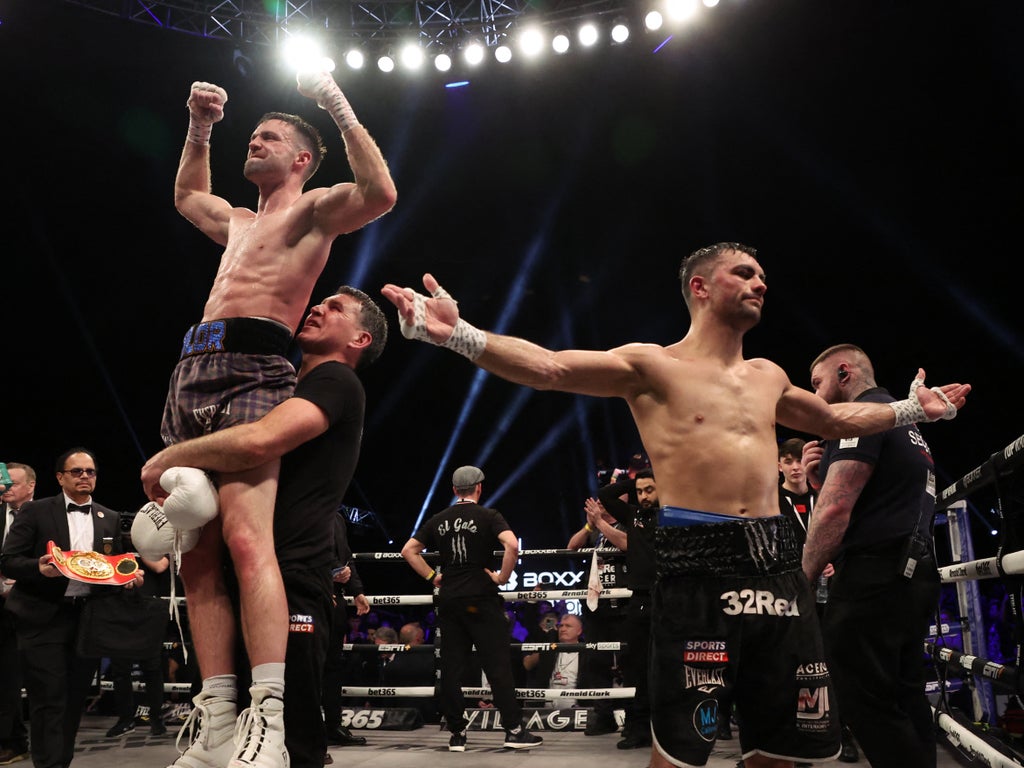
In July 2021, almost five years after Eduard Gutknecht was rushed into an ambulance outside Wembley Arena with a catastrophic brain injury, the Kazakh fighter’s family reached a settlement agreement with the British Boxing Board of Control. Then a 34-year-old father of four, Gutknecht had collapsed in his dressing room after twelve grim and one-sided rounds against George Groves in London.
The intervening years have shed little light on Gutknecht’s situation and details of his agreement with the Board are protected by a Tomlin order, meaning neither the financial value of the settlement nor any details of the court case can be reported on. In fact, there are few news articles online confirming the existence of the settlement at all. The most revealing can be found on the website of Fieldfisher, the law firm that represented Gutknecht’s family, who state that he “attends a workshop for the disabled during the day but the rest of the time is looked after by his wife and sister” and that he “needs constant reminding of how to perform daily tasks, such as cleaning his teeth, and will never be able to work or live alone.”
That such a confidential compromise even exists perhaps offers the best insight into the lack of transparency that clouds modern boxing. Last month in Glasgow, Jack Catterall was denied the defining victory of his career when two out of three British judges ruled in favour of the Scottish champion and overwhelming pre-fight favourite Josh Taylor.
Dubious scoring in boxing matches is of course a story as old as time. There is an initially fierce backlash, capped by unfounded allegations of corruption and more credible accusations of basic incompetence. Promoters echo the concerns of fans, citing that it’s damaging the sport’s reputation - Frank Warren, who first promoted a licenced show in 1980, claimed in the aftermath that he does not want British officials appointed for Tyson Fury’s heavyweight title defence against Dillian Whyte next month. The undeserving winner is targeted with a torrent of abuse, through no fault of their own, like the death threats Taylor has received. Then, as the anger subsides, the losing victim is left out of the spotlight to scour for the pieces of a broken dream.
It is the same cycle that played out following the highly controversial bout between Lewis Ritson and Miguel Vazquez in October 2020. On that occasion, Sky Sports’ unofficial scorecard had Vazquez winning the fight by ten rounds. And yet, Terry O’Connor scored the bout by a wide margin in Ritson’s favour. The magnitude of the fight was minuscule in comparison to Taylor’s, yet the sense of scandal felt far greater. An investigation was opened by the Board in the aftermath but it determined that the stewards were “satisfied that Mr O’Connor’s final score reflected his own opinion of the contest”. Since then, O’Connor has been a judge on 41 bouts, including another Ritson fight last December.
The Board has opened another investigation in the wake of the outcry against Taylor’s win, but that process is unlikely to yield any great results or revelations. The judges will explain how they saw the fight and scoring remains subjective and open to interpretation, even if felt definitive to those watching away from an intensely partisan arena. “There were some very close rounds, it was a very close, very scrappy fight, and I have asked for reports from the judges which we will be studying this week,” the Board’s chairman, Robert Smith, told The Telegraph. “Our judges are honest people, and scored it as they saw it. I was there, and I thought Catterall pipped it.”
That admission will do little to soothe the sense of injustice. Bradley Skeete was one of those most aggrieved while watching Taylor’s hand raised. Last December, Skeete was hit with two punches while already on the canvas in a bout against Hamzah Sheeraz but escaped disqualification. Skeete was stopped in the following round but his appeals afterwards to have the verdict voided went unheeded. The Board said it supported a rematch but, after watching Taylor’s fight, Skeete confirmed he wouldn’t pursue that option. “After seeing the shocking decision against Jack Catterall, I’m glad I’ve made the decision to walk away from boxing,” he wrote.
It has rarely been more obvious than now in the sporting world how opaque many of its governing bodies appear to be. Unlike football, boxing is not so deeply entangled in international politics, but there remains a smokescreen around its governance that yields little more clarity, nor is there is an effective appeal system in place to right the sort of wrong Catterall was made to endure. It might not always damage the sport’s popularity but it continues to erode its trust and health. To regain it not only from the public but the boxers who regularly risk their lives, there needs to be a more concerted willingness to front up to its mistakes. In the sad case of Gutknecht, we may never know if there were any.







